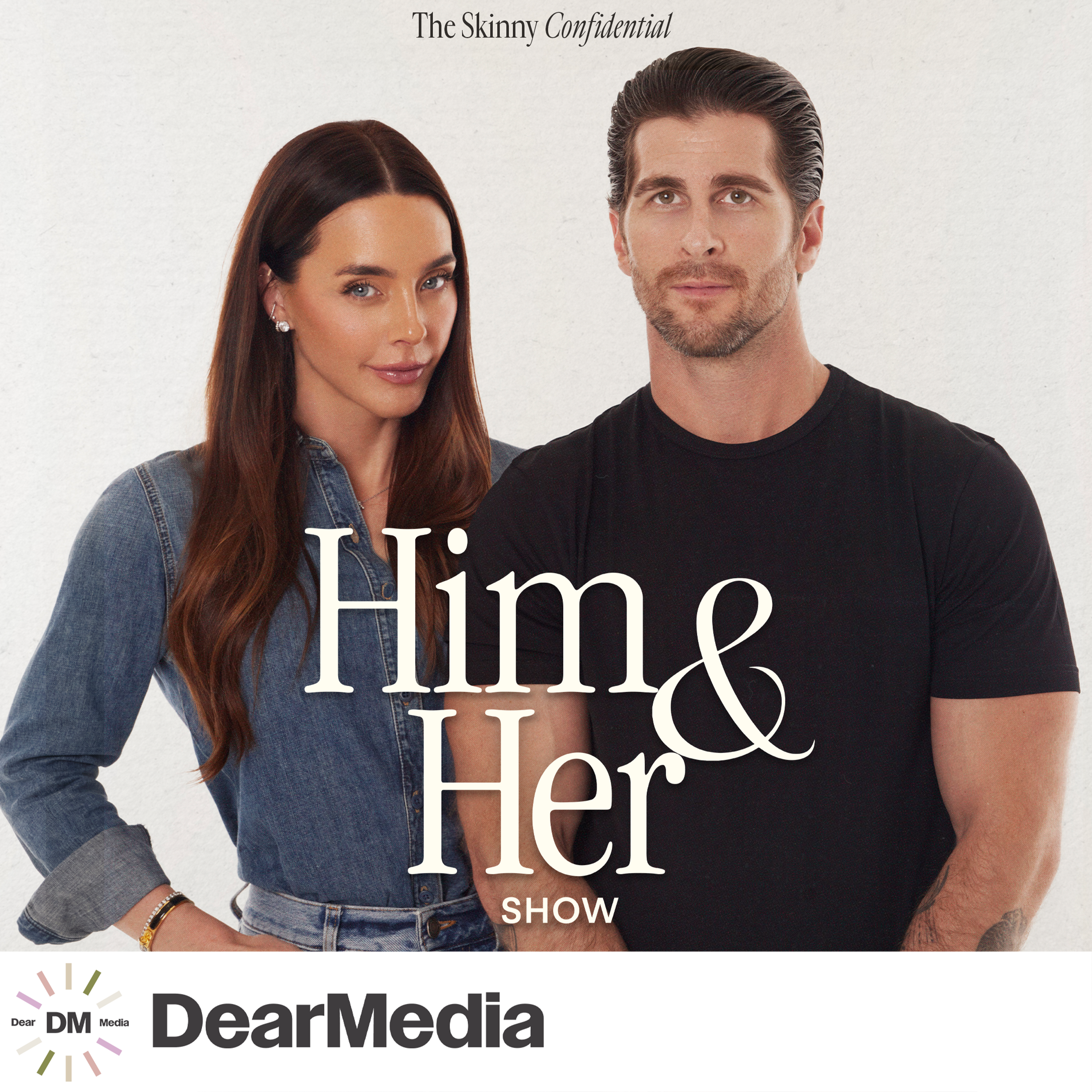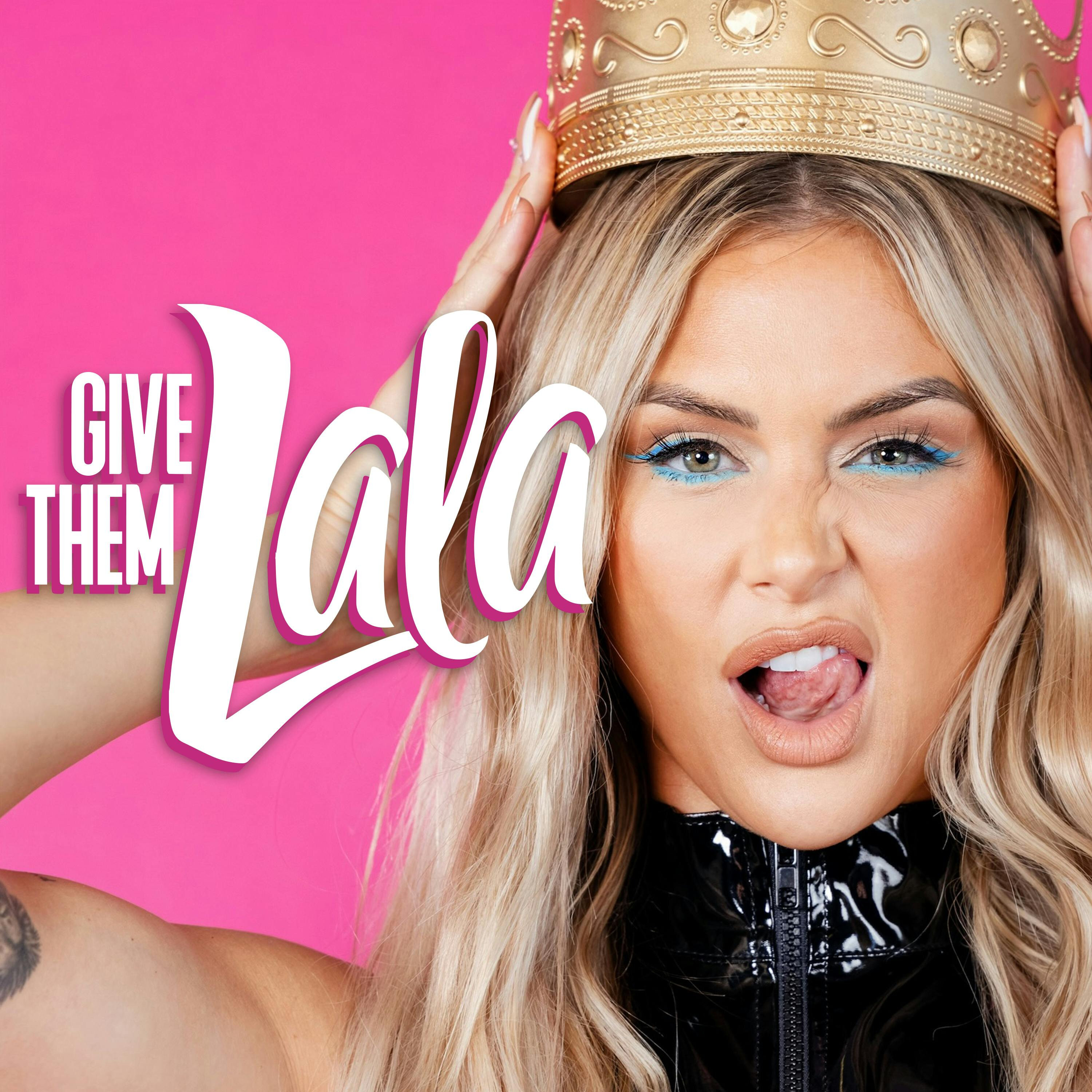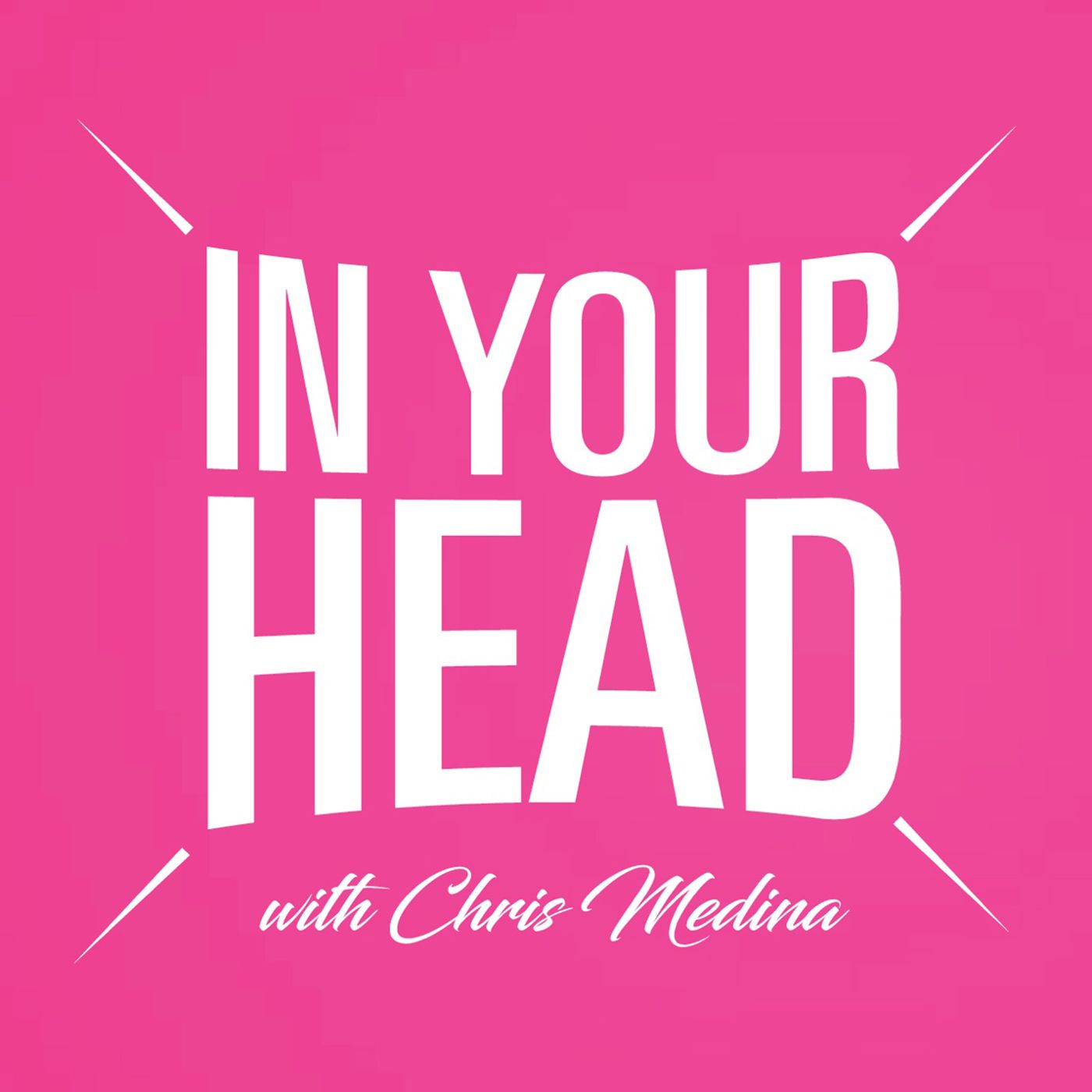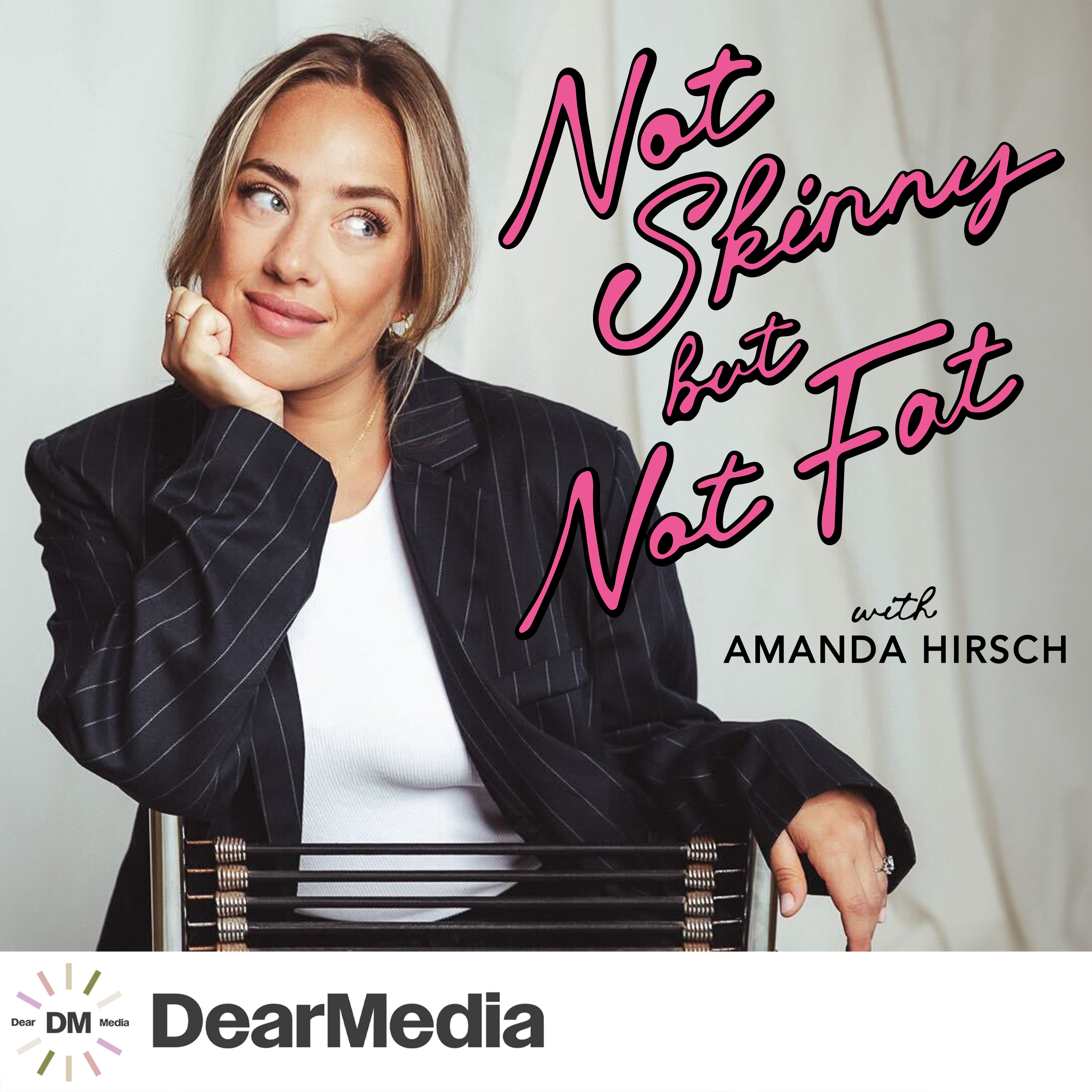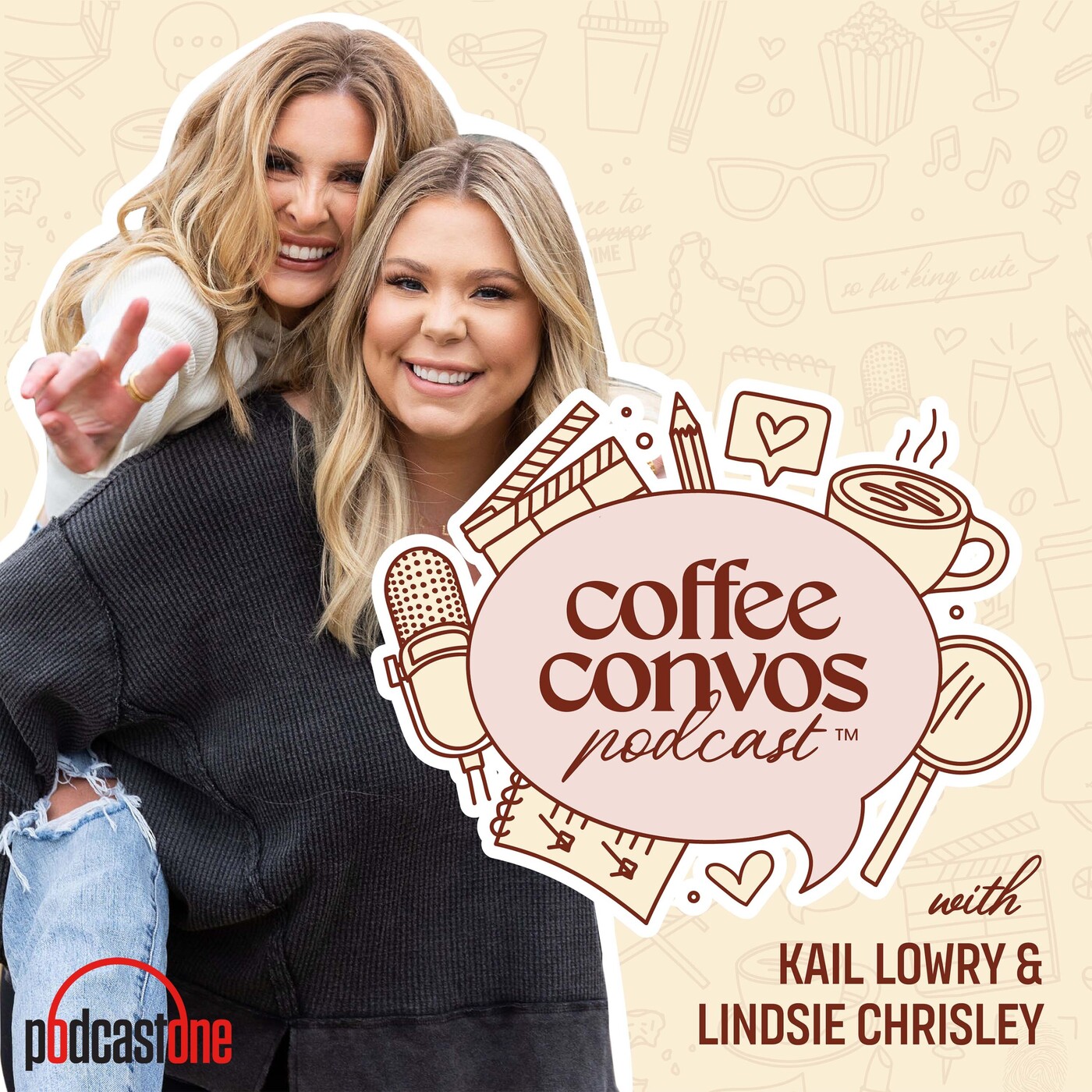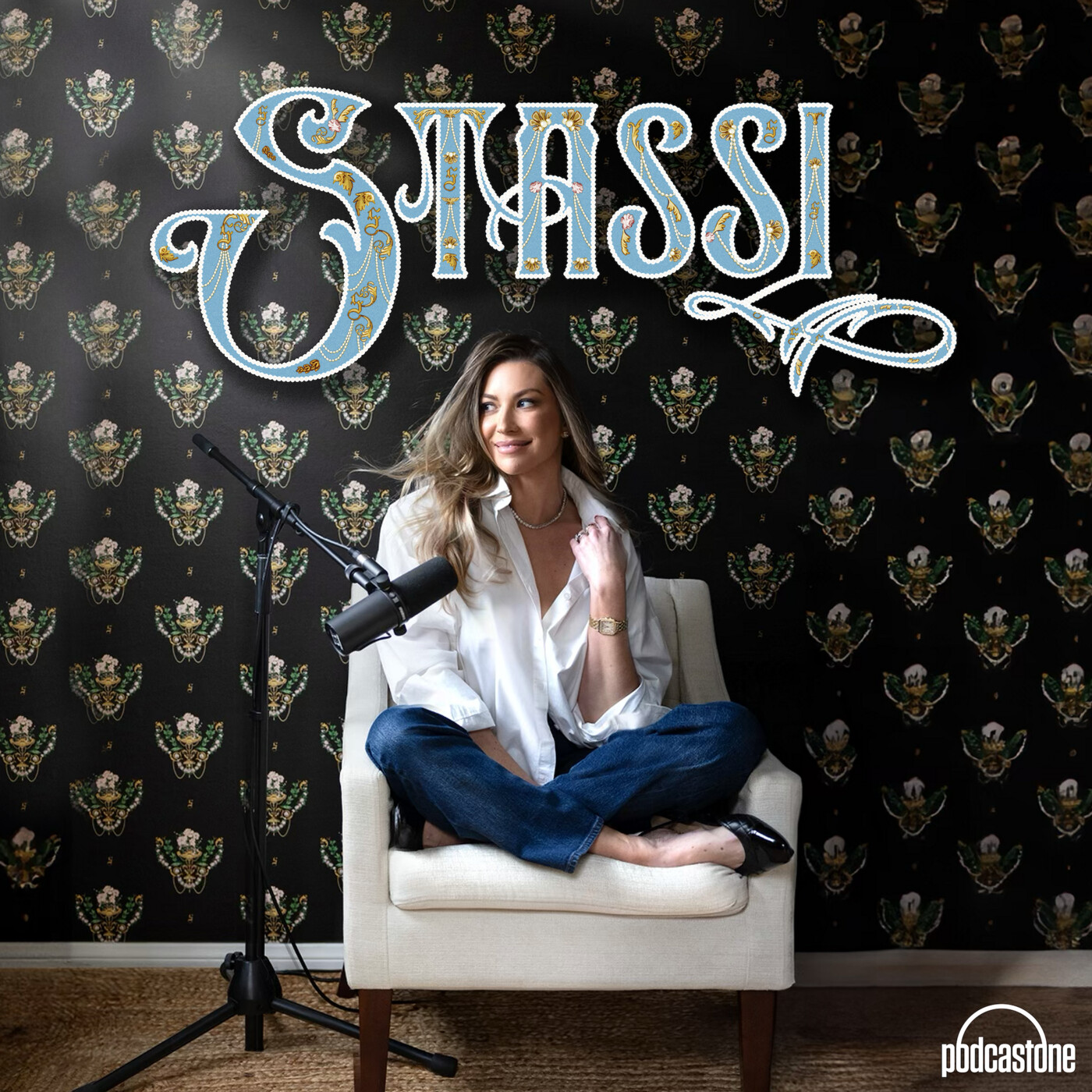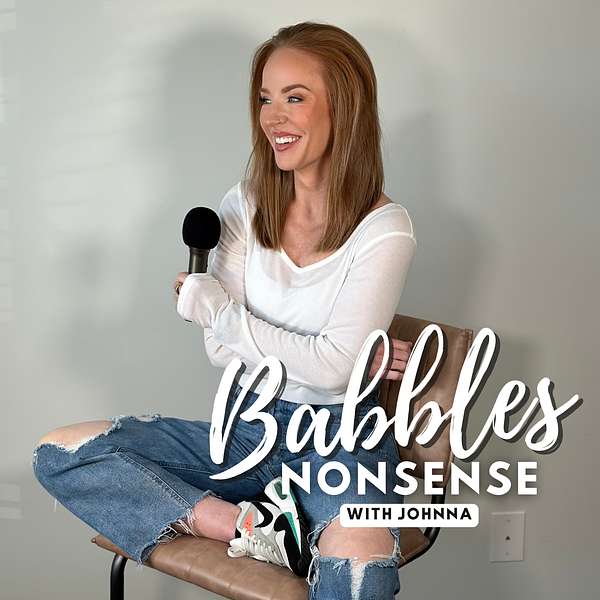
Babbles Nonsense
Welcome to my verbal diary where I want to discuss any and all things that is essentially on my mind or have wondered about. Sometimes I will be solo and then other times I will have some amazing guests to bring all different perspectives in life. The ultimate goal is to hopefully bring some joy, laughter, inspiration, education, and just maybe a little bit of entertainment. Don't forget to like, rate, and share the podcast with a friend!
Babbles Nonsense
Babbling About The Two Sides Of Vulnerability
#176: Ever noticed how "be vulnerable" has become the go-to advice for everything from dating to leadership? But what if vulnerability isn't always the answer?
The truth about vulnerability is far more nuanced than inspirational quotes suggest. While opening up can create deeper connections and build self-respect, vulnerability with the wrong people at the wrong time can leave us wounded, manipulated, and heartbroken. In this raw exploration, I dive into both sides of this emotional coin—examining how vulnerability serves us and when it harms us.
Drawing from personal experiences (including my tendency to overshare in dating situations), I explore what happens when vulnerability becomes a one-sided endeavor. Do you find yourself always being the one to reach out, open up, and share your feelings while others give emotional crumbs in return? That's not intimacy—it's a power imbalance.
We'll also tackle the uncomfortable truth that sometimes people who haven't earned our trust don't deserve access to our hearts. Vulnerability without boundaries is just emotional exposure, and discerning who gets to see your authentic self is an act of self-protection, not walls.
The key isn't to never be vulnerable but to be wise about when and with whom we share our true selves. True vulnerability filters your life, bringing the right people closer while revealing who isn't capable of meeting you where you need to be met.
Whether you're recovering from heartbreak, navigating difficult relationships, or simply trying to understand the line between openness and oversharing, this episode offers a fresh perspective on what healthy vulnerability actually looks like. Listen now and learn how to stop dimming your light just to make others more comfortable.
You can now send us a text to ask a question or review the show. We would love to hear from you!
Follow me on social: https://www.instagram.com/babbles_nonsense/
What is up everyone? Welcome back to another episode of the Babbles Nonsense Podcast. I want to first start out by thanking everyone for supporting last week's episode with the people pleasing. I think it's safe to say that majority of us are people pleasers or, you know, surviving people pleasing, so it seems like everyone really enjoyed that episode.
Johnna :So, to piggyback off that episode a little bit, I want to dive into vulnerability in this episode, kind of kind of from a different take, because I know I've done this on episodes in the past. So I tend to overshare and tend to be vulnerable maybe when I shouldn't, which is odd because it's hard for me to like open up to new people. So I think it's just mostly like I honestly it's probably more in my dating life that I tend to overshare and be more vulnerable when I probably should be a little bit more reserved. So I wanted to take it from a different perspective and talk about it like how it's good for us to be vulnerable and how it can also harm us as well. And when I say harm, I don't mean like truly harm, I just meant like it can maybe either have you end up leaving crying or heartbroken or whatnot, when we choose to be vulnerable with you know, maybe not the right people. So if you're interested in this topic, then stay tuned. All right, guys? Well, like I said in the intro, today we are going to be talking about vulnerability. I'm just going to go ahead and say just ignore. Every time I mess up that word because, for whatever reason, I'm having difficulty with it. But I also know that this word gets tossed around a lot like it's something oh, it's so cute, it's so empowering, like the more vulnerable you are, the better. But then you have the flip side of it where people are taught mostly men, I would say are told not to be vulnerable because that makes you weak.
Johnna :So I wanted to do like a different approach in this episode. I have talked about vulnerability in the past and you know how we can try to be more vulnerable, but I also never had thought about being vulnerable where it could maybe harm you or become more negative. You know, and I've never thought about it from that perspective, probably because I tend to be an overshare, which sometimes makes you vulnerable, but without even wanting to be or trying to be, I mean, you're just trying to, you know, get a point across or have someone listen to you or whatever. But then I, you know, I was looking this up because I wanted, wanted to obviously a topic for this week to follow the people pleasing. And then I just realized, when I looked it up, there was like here's some ways it can be positive and then here's some ways it can be negative. So let's talk about where being vulnerable helps and where it absolutely does not.
Johnna :And again, I'm not a therapist, nor my life coach. I just get interested in these topics. I just I don't know. I just really kind of like how the human brain works and I always want to know why someone is thinking what they're thinking. I typically ask a lot of why questions or become very inquisitive, which can come across as rude to some, which, if y'all are my friends, you're probably sitting there nodding your head, yes, but honestly, from my perception, and what I'm actually trying to do is just to understand how someone came to that conclusion, how someone came to that thought process, and honestly, I don't think it's a bad trait.
Johnna :I used to hate it because I was always like why, why, why, why? I need to understand. I need to understand why can't I be like everybody else and just be like, okay, it is what it is. Well, that's not how my brain is wired. And if you're like that, trust me, you know it's a blessing and a curse, but let's get into it.
Johnna :So why is vulnerable or how is vulnerable vulnerability here to help you? So we're going to talk about the good stuff first and then we'll talk about how it can harm you later. So, number one it deepens real connections. When you're vulnerable, like truly honest about your fears, your flaws, your feelings, you give the right people permission to meet you there, not the quote unquote I'm fine, I'm fine, but the real, messy, human version of you I'm I used to be well, I'm still bad about saying I'm fine, like I feel like I'm a strong, independent person and I feel like I've had to do a lot of stuff, stuff on my own.
Johnna :So when people truly ask me like how are you doing? Or, or maybe I went through a breakup, or, you know, stop dating someone and someone's like how are you doing? And I'm just like, oh, I'm fine, you know, just try not to put my problems on other people, because I know other people are going through stuff too. That brings me to another kind of thought. Like I used to tell people like, oh, my story doesn't matter, it's you know, there's people out there who have worse, but actually our stories do matter. And the reason why I say that is because it does tell a person, kind of how you got to the thought process that you got to. And obviously I have things in my head that I'm thinking about, like certain conversations that I've had with certain people and we'll see how this podcast lays out and where I can kind of intermingle personal stories.
Johnna :But going back to like saying I'm fine all the time or whatnot, I think if we could honestly or just open up and be honest and just say or be vulnerable and say, yes, you know I'm hurting right now, or no, I'm not doing so good, and I think it goes back to like that people pleasing mentality that we talked about last week, like, and just like I just said a few minutes ago, like sometimes we don't want to burden others or we don't want people to think that we are going through something difficult. Our life is quote unquote perfect, it's Instagram worthy, and so we don't want people to think, oh, she's going through something too, but honestly, I think it makes us humans. I think that's why one of the reasons why I started this podcast is because I think that we all have these thoughts surrounding our brains. You know, not daily like mine, but you have these thoughts and you're like I wonder if anyone else thinks this too, or am I alone in this thought process? I mean, obviously we have the internet now and we could all get on reddit or tiktok and find out. But I'm just saying like that's one of the reasons why I did want to start um the podcast. But going back to like the people you know, just not telling the whole truth of how they're feeling, and then if we could just start telling people how we're feeling, like slowly and little, I think that helps open, open you up, to be more vulnerable in those deeper connections, like, obviously, like if someone comes up to you and I don't know, let's say you work at Walmart and you're a cashier and your customer's like how are you doing? I don't, I don't think spilling your guts to that person is the moment to be vulnerable, but maybe we could try a little bit riskier things and just be like oh, you know, it's been a tough day, but I'm sure it'll get better, or you know anything, just to kind of give you those moments of opening up, to be a little bit more vulnerable so that if a friend comes to you and says, okay, how are you doing? You don't just say I'm fine, you can talk to your friend and be vulnerable. But number two being vulnerable can build self-respect. So there is something powerful about speaking your truth, even when it's scary.
Johnna :Vulnerability isn't always about connection with others. Sometimes it's about connection with yourself, about not betraying your own feelings just to appear chill or unbothered or what. What's the other phrase. It is what it is. I'm just going with the flow Because, let's be honest, pretending you don't care when you do can become exhausting. Now, don't get me wrong. I think there are people out there that truly don't care and truly can go with the flow. But for the people that can't and you can't open up and be vulnerable and show like that, like being like well, I just can't do that, or explaining why you can't do that or why it stresses you out.
Johnna :For example, I have a friend, who is one of my best friends, who is a chill, go with the flow person, like she doesn't have to have an itinerary, she doesn't even need to know. Like if we're going on a trip, she doesn't even need to know when we're booking a flight. I mean, she will. I'm just, you know, saucing this up for the podcast, but she can do that. But if I like, if we start getting like four weeks before, oh, we don't have a flight, we don't have a hotel, this is really, really bugging me.
Johnna :We're just very different people and I think that understanding personalities also helps when it comes to being vulnerable, but also builds that self-respect within your friendship as well. There's also always a way to communicate, right Like I can't go up to my friend and be like bitch, can you please figure this out? Like she's going to take offense to that because her personality and her brain isn't wired that way. So I can easily come up to her and just say, hey, girl, this is really stressing me out. Can we have a deadline? Or can we compromise on when the flight should be booked? You know something like that? And vice versa, like just because my personality is the more aggressive one usually and when I say aggressive I mean like it's it's more because I'm so loud, I'm so vocal most of the time it can be perceived as the negative of the two, where I do think people who are quieter or who don't speak up or, you know, are chill and go with the flow. I think that sometimes we have to remember they're compromising is both ways right. But anyways, enough about that.
Johnna :Number three, on how vulnerability can be positive it exposes who's not for you, so this one can sting a little bit, but it also can be a gift. So when you're vulnerable with someone and they shut down, ghost or mock you, that is information and we have to remember that it's painful or it can be painful, but it also can clarify, because a lot of you know I'm learning no answer is an answer, and that was really hard for me for a really long time. I think I mentioned this on a past podcast where I talked about how being ignored is just really hard for me because of my childhood trauma, and so I'm having to work through that. And the more I work through that, the more I realize, like okay, if someone doesn't answer you or doesn't answer you in the way that you expected or wanted, that is an answer, you know. So stop asking why talking to myself to find a different answer, because that's what you're trying to do is you're just trying to find a different answer. But anyways, vulnerability has a way of revealing what's real and what's performative and, even though it hurts, you just saved yourself months or years of guessing when someone says no, and that's something I had to tell myself. So those are the three of the positives for vulnerability, and then here are some of the ways I think it's three ways vulnerability can hurt you. So we're going to talk about that side for now, because being vulnerable is not always being brave or beautiful in that moment that we want it to be.
Johnna :So number one on how vulnerability can seem on the more negative side or hurtful side, is when the other person hasn't earned it, and what that means is like we have to realize that not everyone deserves access to our hearts. I'm really bad about that. I know some people who meet me, like in my professional life, think I am pretty closed off, but I really do have a huge heart and I get hurt a lot because I tried to make myself come across like I don't care, when I really care a lot. Yeah, that's vulnerable, right there to say that, because sometimes, like you, it's a self-defense mechanism, right. And then sometimes we confuse oversharing with connection. So you know I overshare a lot to a lot of people aka this podcast, and sometimes you know, when I meet someone that's willing to listen or willing to communicate back, sometimes I do confuse that with having a connection with them, because it's hard to find those people who will overshare back or communicate back.
Johnna :So just remember that vulnerability without the boundaries is just emotional exposure. So you're just kind of putting yourself out there for people to hurt you and I'm not saying intentionally hurt you. But, for example, like when I was dating and I tend to overshare because I'm very nervous, I have social anxiety and I just kind of talk a lot, especially on the first date, and I'll like, if someone asked me a question, I'm like, oh yeah, I'll tell you all about that, I'll tell you the truth. And sometimes, if you're being vulnerable with someone and you're doing it because you think, because they're a good listener or whatever, and you think that they care, sometimes they may use that to harm you later. Sometimes they just want the playbook to know how to hurt you or to play you or to get away with it. Why I still haven't figured out, but just remember that it that is one way that it can harm you. So if someone hasn't shown the consistency or emotional maturity or that they care about you, probably not the best place to overshare or drop the truth. Okay, me. So basically, dating, think about that.
Johnna :In the dating world. If you're out dating someone new, sometimes it is good to stay a little mysterious. It's very hard for me. I always say, like I can't be someone I'm not and so maybe I'm just gonna have to wait for the person who accepts flaws and all you know. And number two for how vulnerability can sometimes harm us is when it becomes a pattern of self-abandonment. Which raise the hand here so like, have you ever been in a situation where you're always the one reaching out to someone, opening up, saying, hey, can we talk? I really got something to say, because I'll tell you right now that typically is me. Um, so if you find yourself being vulnerable over and over again with someone who gives you crumbs in return, that's not intimacy nor vulnerability on their behalf.
Johnna :That is a power imbalance and, like me and you is always talking about, we have to keep our power, because when you give it away, it does become very unattractive, and that is something I would say. I've done a lot in my dating life. I, you know, gave them all the power. Oh, what if they don't like me? Or what if they? That is unattractive, because so what if they don't like what I have to say? They don't have to like what I have to say. They don't have to agree with what I have to say, but what they do have to do, if we're in this partnership together, is be willing to listen. And if they're not willing to listen or not willing to be vulnerable back, then that's really not a partnership, that is just a power imbalance. So sometimes being quote unquote vulnerable is just a power imbalance. So sometimes being quote unquote vulnerable is just a way we keep chasing validation from someone who's not capable of giving it. So just remember that I really should have probably had me knew on this episode to go over it, because she would have a lot more life coaching things to say versus me. I can just give you kind of examples.
Johnna :But the third way that being vulnerable can sometimes harm us is when you use it to control the outcome. So sometimes this is subtle but it can be very real. Like, for example, we can think if I just say this vulnerable thing, they'll see how much I care, they'll change, they'll listen or whatever else you want to put in there and then when the person doesn't change or doesn't listen or doesn't care, we are heartbroken, we're left heartbroken, we're left in the dust, because when you're not being authentically vulnerable to express how you're feeling, that can then turn into a manipulation tactic where you're just trying to be vulnerable to convince someone to agree with you. I have seen that happen. I've never done that. Actually, like I, when I'm being vulnerable, I'm truly being vulnerable to express how I'm feeling, and sometimes it comes across way wrong because I need to sometimes learn to take a step away and come back to the situation when I can better explain it or better articulate it.
Johnna :But anyways, I think here's some of the truths that I've had to come to realize in a lot of situations that have been going on in my life lately is that vulnerability can be a tool. It's not a personality trait. I don't think everyone's walking around going. I'm a vulnerable person, I'm, you know. I think we all want that but it can be a tool where, if you can tap into that emotion and you can open up and you can be vulnerable, then I think that does bring out like a more sensitive side and a more attractive side of you, because if you can open that up, um it just, you know I can. I don't know how to explain it, but it just comes across more authentic. But we also have to know that we don't owe that to everyone, something that I'm learning myself. But we have to start using discernment on who gets our vulnerable side, who we can be emotionally safe with, who we know is going to empower us and who we know is going to encourage us to continue that side.
Johnna :And I think when you have two people that are willing to be vulnerable whether it be new or not, I think that does become a power because you can learn each other better and you can grow better. But when you have someone who is willing to be vulnerable and someone who is willing to not be vulnerable, then that's where the mishaps happen, the miscommunications happen, because you have to also be like, for example, if some, if I'm being vulnerable to someone and they're they're not listening or they're not hearing me and they're not willing to be vulnerable, back then a conversation usually shuts down. And if they are willing to be vulnerable back, then I also think as women and sorry, this is one thing I am going to say about women I think, as women, it's already hard enough for men to be vulnerable because of society and the way they were raised and things like that. I think it's getting better the more women are trying to teach men their emotions. But I think that if a man is and willing, after you know harping on it for a long time, to be vulnerable back, I think that's when women have to sit quiet and listen, and truly listen to hear what they're saying. Otherwise it shuts it down. If we immediately interrupt or we immediately say no, no, no, no, no, no, or we do any of that, that's discounting someone else's feelings. But also you have to have the emotional intelligence to know if they are doing what like it. Like we said earlier, if they are, you know being vulnerable to convince, or you know manipulate, or they're actually truly being vulnerable and I think if you have the discernment, you should be able to tell that. But I obviously I'm not a therapist, I can't tell you how to tell that, but I think that's something we as women need to get better at. We need to get better at listening to men when they're being vulnerable and not just automatically shutting it down, because when you shut it down, then forget it and then don't get mad when they're not vulnerable again.
Johnna :You know what I'm saying, but just know that the whole caveat to this podcast is vulnerability with the right people will deepen your connection and vulnerability with the wrong people can deepen your wounds and you will remain heartbroken. So the goal isn't to never not be vulnerable. The goal is to be wise about when and with who we are vulnerable with. So if you're struggling with being vulnerable, just know that you're not alone.
Johnna :It takes guts, it's not for the faint of heart and I would say I get real vulnerable with people very easily and I probably shouldn't, but then I also have a very hard time of letting people in my circle. So that's that's also needs to go into life coaching. Sometimes when I do these podcasts, I'm like, okay, now I know what I need to talk about in therapy next. But I'll tell you this vulnerability, done right, can and will filter your life. It will show you who's real, it will bring you the right people closer and it will help you stop dimming your light just to make someone else feel more comfortable. And if someone can't handle your honesty, your tenderness or your truth, then that says more about them and not anything about you or your worth, so that's where I'll leave it. Thanks for listening and, and as always guys, um until next time. Bye you.

